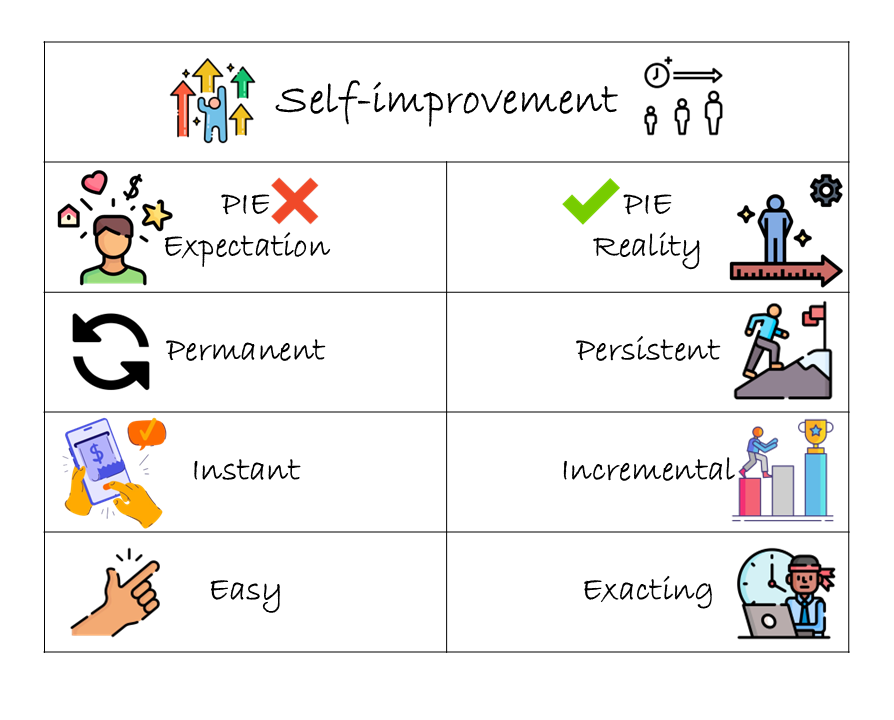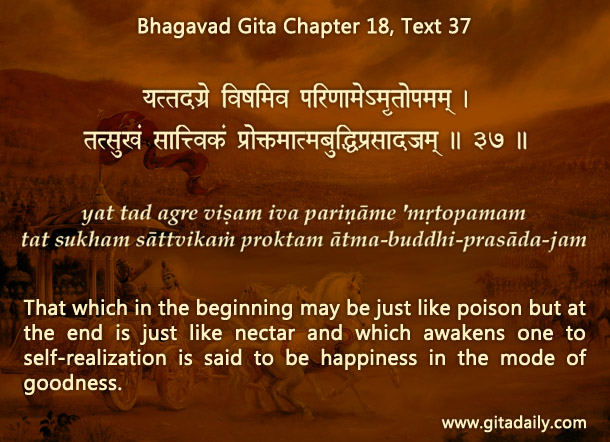Self-improvement: The PIE we can’t have and the PIE we can have
Self-improvement is one of life’s most challenging endeavors—not only because changing ourselves is intrinsically difficult, but also because of the significant mismatch between our expectations and reality.
We often expect self-improvement to follow a trajectory best summarized by the acronym PIE: permanent, instant, and easy. For example, when we decide to overcome an unhealthy habit, we may believe that our resolution will:
1. Be permanent, meaning the change will be irreversible, with no temptation or torment to turn back.
2. Be instant, with the process starting and finishing quickly, allowing us to move on to other areas of life.
3. Be easy, requiring minimal effort to sustain.
This is the PIE of unrealistic expectations—a fantasy that leads to frustration and failure.
However, this doesn’t mean that self-improvement is unattainable or excessively difficult. Success is achievable, but it requires a different PIE: persistent, incremental, and exacting.
A realistic PIE for self-improvement
To align ourselves with the reality of self-improvement, we need to reset our expectations. The Bhagavad Gita (18.37) highlights this need by describing how the best joys in life taste like poison at first before revealing their true sweetness. This “initial poison” represents the challenges we must endure before experiencing the fruits of transformation. Here’s how the realistic PIE applies:
1. Persistent
Self-improvement is a long journey fraught with setbacks. Our mind will often challenge our resolve, causing second thoughts and even U-turns. Progress may look like five steps forward and three steps back—or, in discouraging moments, even ten steps back.
However, persistence ensures progress despite these setbacks. Even when we slide backward, the act of rising again reinforces our commitment and strengthens our resolve.
2. Incremental
Transformation is rarely instant; it happens gradually. Much like wars fought inch by inch, self-improvement involves gaining territory slowly but steadily. Each small victory is progress, and we need to appreciate these increments instead of resenting the pace. Incremental growth might feel slow, but it’s far better than stagnation or regression.
3. Exacting
Self-improvement demands precise effort. We need to deeply understand how our desires and emotions sabotage us, set and enforce boundaries to prevent inner sabotage, and cultivate habits that strengthen us. This meticulous work eventually takes us beyond the gravitational pull of our past habits and attachments.
When we embrace persistence, accept incremental progress, and prepare for exacting effort, we are equipped to fight the long war of self-improvement. This journey culminates in the ultimate nectar: living as a far better version of ourselves and contributing meaningfully to the world around us.

Summary:
- Self-improvement is discouragingly difficult, not just because inner change is inherently tough, but also because our expectations often don’t match reality.
- Unrealistic expectations: Self-improvement will be permanent, instant, and easy (PIE).
- Realistic requirements: Self-improvement needs to be persistent, incremental, and exacting (PIE).
Think it over:
- Among the unrealistic expectations (permanent, instant, and easy), which one undermines your efforts the most?
- Among the realistic requirements (persistent, incremental, and exacting), which one do you find most challenging?
- List three steps to adjust your expectations to be more grounded.
- List three strategies to meet the challenges involved in realistic self-improvement.
***
18.37 That which in the beginning may be just like poison but at the end is just like nectar and which awakens one to self-realization is said to be happiness in the mode of goodness.



Leave A Comment